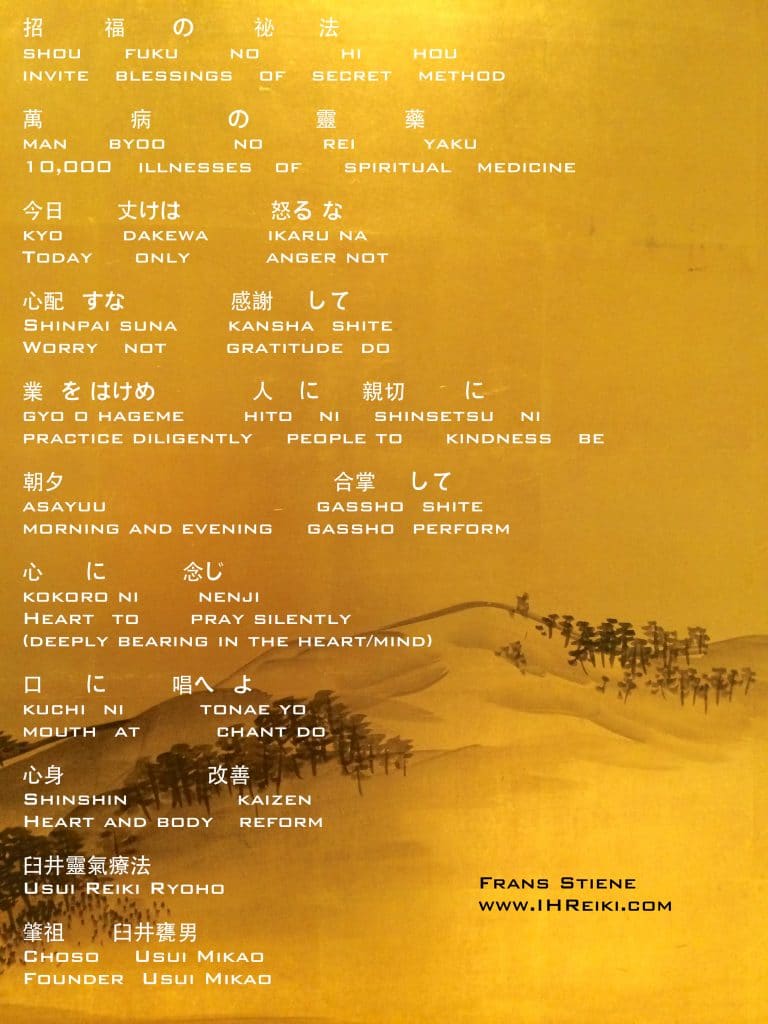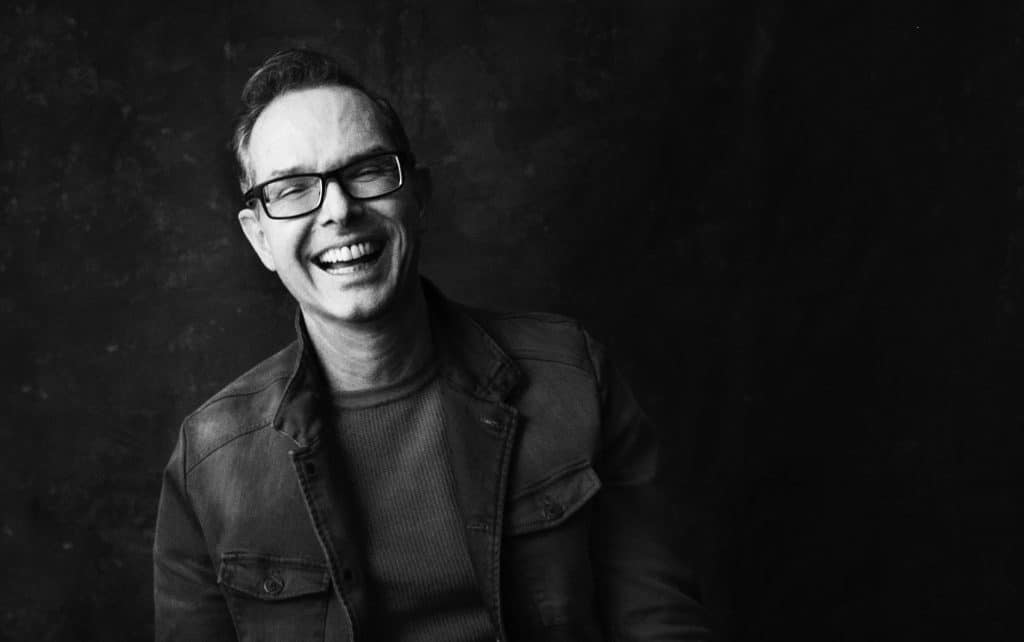
The other day a student asked me what would be more beneficial, chanting the precepts or reciting them?
The secret method to invite blessings
The spiritual medicine of 10.000 illnesses.
Today only
Do not anger
Do not worry
By grateful
Practice diligently
Show compassion to yourself and others
Perform gassho morning and evening
Bear deeply in your heart/mind
Chant with your mouth
Reform heart/mind and body
Shou fuku no hi hou
Man byoo no rei yaku
Kyo dakewa
Ikaru na
Shinpai Suna
Kansha Shite
Gyo o hageme
Hito ni shinsetsu ni
Asayuu gassho shite
Kokoro ni nenji
Kuchi ni tonae yo
Shinshin kaizen
We often are told just to recite the precepts three times, either in Japanese or in our own language. However we all know that just by reciting the precepts three times we will not really embody them. If it were that simple, then by now the whole world would have no more anger and worry, and always would be filled with gratitude and compassion. We would just ask everybody to recite the precepts three times and presto! The world becomes a better place. But as we all know, it is not that simple.
Don’t get me wrong; reciting is great. But to recite is to speak from memory, so this can become merely an intellectual experience. Reciting mainly comes from our throat and from our intellectual mind; in the background, our memory/mind tells us “this is the first precept, which is followed by the second precept” and so on. Often this means that reciting only triggers some energy within our heads.
However, Mikao Usui suggested within the precepts themselves that we bear them deeply in our heart/mind. This is done through chanting them. As the precepts say, “Every morning and evening, join your hands in prayer (gassho). Bear deeply in your heart/mind and chant these words with your mouth.”
To chant the precepts is something very different from simple recitation. In this case the precepts are seen as a mantra. The word mantra means “protection for the mind”.
It protects the mind from not straying into the past, present, and future; this helps the mind to not get angry or worried and helps us become more compassionate.
Within Shoden Reiki Level I we learn the meditation Joshin Kokyu Ho in which we breathe deeply into the hara/tanden. This practice, called okinagaho in Japanese, triggers long breathing and helps to increase power in the physical body. This power can then be used, for example, to not get angry or worried and to be compassionate to ourselves and others.
The deep long breathing also ensures that when we use the precepts as a mantra the sound emanates from the centre of our being, from the hara/tanden. Thus the energy being released through chanting can travel throughout our whole being, not just within our head. This way we start to bear the precepts deeply in our heart/mind, and not just in our memory/mind. But even if we chant the mantra just three times like this, that doesn’t make much change either. Therefore to really bear the precepts in our heart/mind we need to chant them for a prolonged period of time, maybe 20 minutes for example. This will help to rest our mind on our hara/tanden because of the deep long breathing, which in turn helps us to become more grounded and centred, which in turn helps us to become less angry and worried. You see all the practices within the system of Reiki are interrelated.
Of course we can say it is semantics, recite vs. chant, but that depends on how we recite. If we recite with the deep long breathing pattern from our hara/tanden, then reciting becomes mantra.
So which is better, chanting or reciting? Both are good as long as we recite or chant for a prolonged period of time and the sounds come from our hara/tanden, our centre. This will help us to embody the precepts more and more so that we can become the precepts.
Again, all the practices within the system of Reiki are interrelated, intertwined with each other…just as we all are.
When an experienced practitioner talks, his words have a blessed energy. He may be talking about the same thing the scholars are, but the way he expresses himself touches your heart. The talk of those without experience is like the empty wind whistling about your ears.
– Lama Thubten Yeshe
Listen to Frans Stiene chant the precepts.
Based in Holland, Frans Stiene teaches in North America, Europe, UK, Australia and Asia.
Frans is also the author of Reiki Insights, it is the continuation of his previous book The Inner Heart of Reiki, taking your personal practice and understanding of the system of Reiki yet another step deeper.


Comments 6
I completely agree that chanting brings a deeper level of understanding the precepts. Still I feel that one needs to start somewhere and reciting the precepts might seem like a baby step it is better than no step. From there one can learn to walk, to run, to be the precepts. I love chanting the precepts while walking. Each step grounding me. Blessings.
Hi Kathi, yes reciting can be a baby step indeed. As we also learn joshin kokyu ho in level one then we can couple it with the chanting, chanting from the hara.
See you soon!
Love
Frans
This is a great teaching Frans. It gives deeper meaning to the importance of chanting the precepts. Thanks for the teaching. Aroha 🙏🏼
Author
Hi Julie, I think it is so important to feel and experience the difference. Just reciting it 3 times, as we all know, is not enough, to really embody the precepts. Hence we need to chant it over a prolonged period of time.
Love
Frans
Love this. As I always found and share also with those that accompany me on the path of Reiki it is a way of living and becoming by doing, practising daily to integrate fully the system of Reiki. Thank you for sharing. 💚
Author
Thank you Yolande, chanting triggers so much healing.
Love
Frans